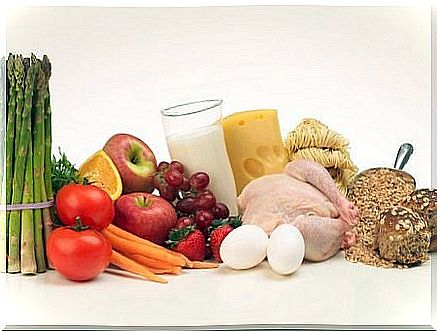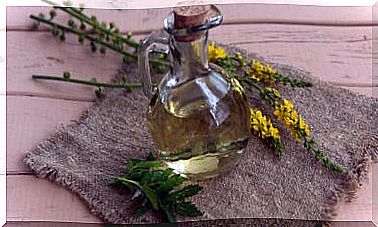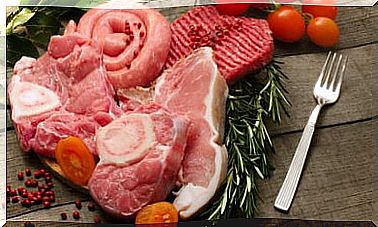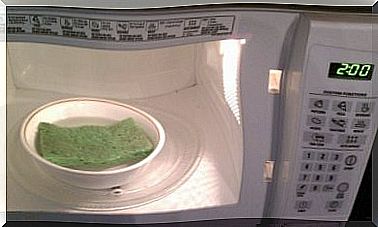Pros And Cons Of Organic Food
The organic food industry is at its best, thanks to its demand being greater than ever.
The difference between organic and non-organic food is that the former is made without synthetic fertilizers or pesticides.
They grow with the intervention of genetic engineering, without purified sludge, without the use of radiation and, of course, without preservatives.
In order to be certified, these meals must have at least 95% organic ingredients.
However, with only 70% ingredients organic , a food can be considered as organic food.
Take a look at the pros and cons that this type of food brings to your health.
The pros
They avoid pesticides
Pesticides and pesticides are designed to be toxic and are used to prevent damage from insects, weeds, rodents, and fungi.
However, although the doses of pesticides are regulated so that they are not dangerous for people, it is believed that in the long term they can cause problems to our health.
Although there are no studies that demonstrate the impact of possible pesticide residues on human health, there is growing evidence linking exposure to these chemicals with increases in diseases such as diabetes, cancer and Alzheimer’s.
On the other hand, pesticides are known to be dangerous especially for children and pregnant women, since they increase the possibility of having attention and learning problems, low weight at birth, brain development, nervous system and pediatric cancer.
Organic food crops are four times less likely to have pesticide residues, as well as containing lower concentrations of cadmium, a toxic metal sometimes found in conventional chemical fertilizers.
They are respectful with the environment
The environmental impact of conventional agriculture is staggering and obvious. Pollutants from different forms of harvest cause widespread damage to the environment.
For example, in the Gulf of Mexico, conventional chemical fertilizers have created massive algal blooms, which consume oxygen from the Water and they have reduced marine life.
The practice of organic agriculture reduces the risk of water pollution and prevents soil erosion with harmful substances.
Safer meats
Raising animals organically allows them to grow without the use of antibiotics, hormones, or pesticide-treated foods.
According to Dr. Kazuaki Miyagishima, Director of Food Safety at the World Health Organization, antibiotics given to animals for meat production have brought antibiotic resistance to an emergency situation.
In the United States alone, about 400,000 people contract antibiotic-resistant illnesses, according to the Center for Disease Control.
Consuming organic meat helps you minimize your exposure to antibiotic-resistant bacteria.
More nutrients

Organic crops have a higher concentration of antioxidants important to your body.
Contrary to popular belief, organic foods do not provide more nutrients, according to several studies.
However, organic meat does have more antioxidants than regular meat. This claim is based on 67 studies whose conclusions were presented in the British Journal of Nutrition.
It is estimated that this difference is produced by the intake of organic food that is supplied to chickens, pigs and cows to produce organic meat.
Many of these antioxidants are responsible for protecting cells and reducing the risk of some types of cancer, cardiovascular diseases and Alzheimer’s disease.
Organic milk has 47% more omega 3 fatty acid than non-organic milk and 14% more omega 6.
In addition, omega 3 is also found in yogurt and cheese made with organic milk.
Of course, these should not be your only source of omega-3s, since in such a case, you would have to drink 11 liters of milk and 4 ounces of salmon (113 g) to get the daily amount that your body needs.
Avoid GMOs and food additives
As they do not require genetically modified organisms, Eating organic food is one of the best ways to know that you are eating GMO-free products.
The impact of these on your health and that of the environment is still unknown.
Organic certification standards prohibit or severely limit its use, in addition to additives such as:
- Preservatives
- Colorants
- Flavorings
- Artificial sweeteners in food.
The cons of organic food
High cost
Some organic foods cost almost twice as much as their conventional versions . Their high demand, combined with lower crop yields, drives up costs.
In addition, their production is usually more expensive, because they require more labor. This implies an increase of between 10 and 40 percent.
They do not prevent foodborne illness

Beyond bacteria resistant to antibiotics , organic food are no safer than non-safe when it comes to contamination through bacteria .
Foods of all varieties are prone to listeria, E. Coli , Salmonella, and other bacteria. In fact, there is only a 10% less chance of finding one of these bacteria in organic food.
Shorter lifespan
Organic food has a lower shelf life, compared to other products that conventionally found on the market.
This is because they are not treated with wax or preservatives that keep them on the shelves longer.
For this reason, you will likely have to buy less and more often.









